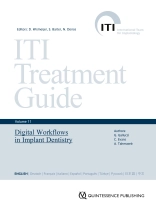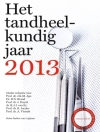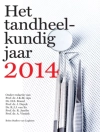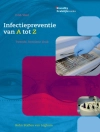The field of implant dentistry continues to grow both in terms of the number of practitioners placing and restoring implants and in terms of as well as patient demand for successful outcomes in as short a time as possible. The pace of technological changes and new offerings from implant manufacturers and allied industries are equally fast in their attempts to meet these demands, with a frequently bewildering array of potential solutions available to clinicians. This is never more so than in the field of digital dentistry, with hardware and software solutions for diagnosis, imaging, planning, surgery, impression-taking, and the computer-aided design and manufacture of intraoral prostheses.
However, we must always remember our responsibility to ensure that our treatments are carried out safely and in the best interests of our patients. This new Volume 11 of the ITI Treatment Guide series continues the successful theme of the previous ten volumes: a compendium of evidence-based methodology in digital techniques and procedures for daily practice. Written by renowned clinicians and supported by contributions from expert practitioners, the ITI Treatment Guide Digital Workflows in Implant Dentistry provides a comprehensive overview of various technological options and their safe clinical application.
विषयसूची
Chapter 01. Introduction
• Acquiring Digital Data
• Manipulating Digital Data
Chapter 02. Surface Scans
• Introduction
• Analog Impressions
• Digital ‘Impressions’-Digitization of the Oral Cavity
• Accuracy: Trueness and Precision
• The Need for Physical Models
• Concluding Remarks
Chapter 03. Facial Scanning
• Technological Evolution
• Technological Principles of Contemporary Facial Scanning
• Applications in Prosthetic Dentistry
• Clinical Case
• Dynamic Facial Scanners
• Shortcomings and Future Technical Improvements
• Conclusions
Chapter 04. Software Packages
• Diagnostics and Data Collection
• Prosthetic and Surgical Planning
• Computer-Assisted Design (CAD)
• Computer-Assisted Manufacturing (CAM)
• Concluding Remarks
Chapter 05. Merging Digital Datasets
• Scanning Technologies and Related Datasets
• Accuracy of CBCT Scans.
• Field of View (Fo V)
• Beam Hardening and Scatter
• Preparation a Patient for a CBCT Scan
• Merging Files
Chapter 06. Digital Workflows in Implant Prosthodontics
• Digital Workflows Applied to Patient Care
• Diagnostic Steps of the Digital Workflow
• Planning Steps of the Digital Workflow
• Surgical Steps of the Digital Workflow
• Prosthodontic Steps of the Digital Workflow
• Alternative Steps in Digital Workflows
Chapter 07. Computer-Guided Surgery
• Terminology
• Systems Used in Guided Surgery
• Positioning the Surgical Guide
• Prefabrication of Prostheses and Immediate Loading
• Limitations
• Future Developments
Chapter 08. CAD/CAM Technology and Custom Bone Grafts
• Milled Bone-Graft Materials
• Printed Bone-Graft Materials
• Full 3D Planning of Free Vascularized Fibula Flaps for Maxillofacial Defects
Chapter 09. Digital Articulators
• Introduction
• Mechanical Articulators
• Digital Articulators
• Possible Future Developments
Chapter 10. Fabrication Techniques and Materials
• Fabrication Techniques and Restorative Materials
• Metal Alloys
• Zirconia
• Lithium Disilicate
Chapter 11. Complications and Technical Challenges
• Scanning-Related Complications
• Software-Integration Complications
• Milling Complications
Chapter 12. Future Developments and Challenges
Chapter 13. Clinical Case Presentations: Implant-Supported Restorations Using Guided Surgery and CAD/CAM in a Digital Workflow
Chapter 14. Technical and Clinical Recommendations
Chapter 15. References












